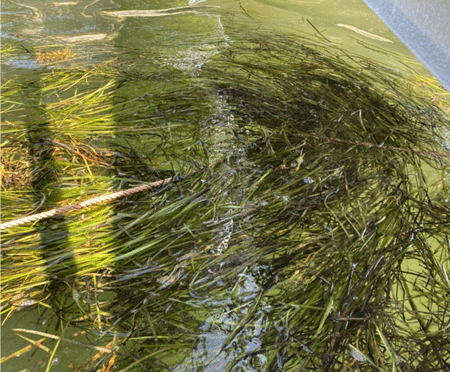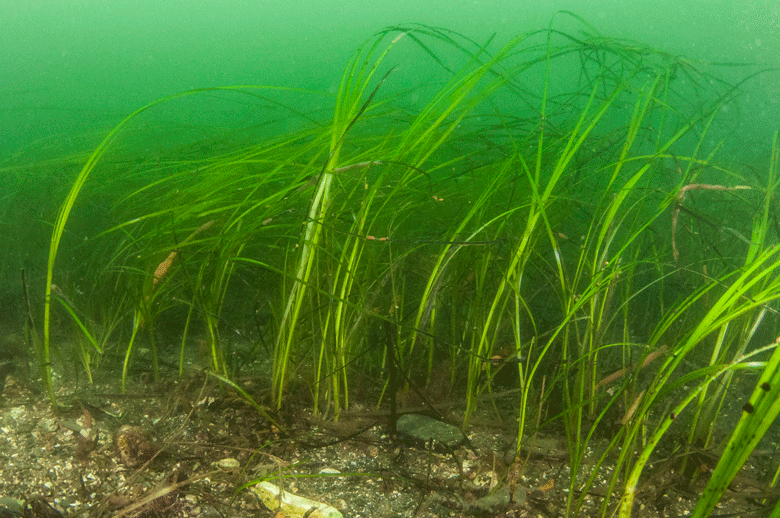Eelgrass meadows in Casco Bay have declined in size by 54 percent over the past four years, a loss described as “staggering” in a new report from the Maine Department of Environmental Protection (DEP).
This decline of the federally protected marine habitat places eelgrass meadows in Casco Bay at their smallest size since monitoring efforts began in 1993. Warmer water temperatures in Casco Bay are thought to be a primary driver.
“We’ve worried over the last few summers about what impact really warm water temperatures might have on this fragile, beautiful, and important plant,” says Casco Baykeeper Ivy Frignoca. “Eelgrass forms one of the most productive habitats in the marine environment, stores carbon, and buffers against erosion from intense storms. This is a devastating loss and we are talking with other experts to determine what we might do to save eelgrass.”
“Eelgrass forms one of the most productive habitats in the marine environment, stores carbon, and buffers against erosion.”
Eelgrass coverage in Casco Bay declined by 54.5 percent between 2018-2022, in addition to overall declines in the density of remaining eelgrass meadows, according to the DEP report. Much of the hardest-hit eelgrass habitat in Casco Bay is in Yarmouth, Freeport, Brunswick, and Harpswell, the same areas that saw significant eelgrass loss in 2011-2012.
Eelgrass is a ribbon-like seagrass that grows in submerged waters in Casco Bay and temperate marine zones around the world. Eelgrass meadows create a habitat that is one of the most valuable and productive in the marine environment.

Eelgrass meadows form the base of a marine food web, supporting organisms like invertebrates, fish, and waterfowl (including economically important fish and shellfish). Eelgrass meadows help maintain water quality by absorbing nutrients and stabilizing sediments, and reduce erosion by absorbing the force of wave energy. Eelgrass meadows are also exceptionally good at absorbing and storing carbon dioxide.
Casco Bay and the Gulf of Maine are some of the fastest warming water bodies on the planet. Warmer water temperatures and the cascade of changes they can cause are thought to be a major driver of eelgrass loss.
Warmer waters are correlated with growth in green crab populations, which are known to clip and uproot eelgrass as they search for food.
Warmer water temperatures can also encourage algal blooms, which prevent light from reaching the seafloor. The DEP report suggests light availability was a major factor contributing to the observed eelgrass loss in 2022.
Local factors such as nitrogen pollution from stormwater runoff and wastewater treatment effluents can also cause eelgrass loss. Friends of Casco Bay continues to advocate for policies and practices that reduce nitrogen pollution, and is working with DEP to develop nitrogen criteria for Maine waters.





